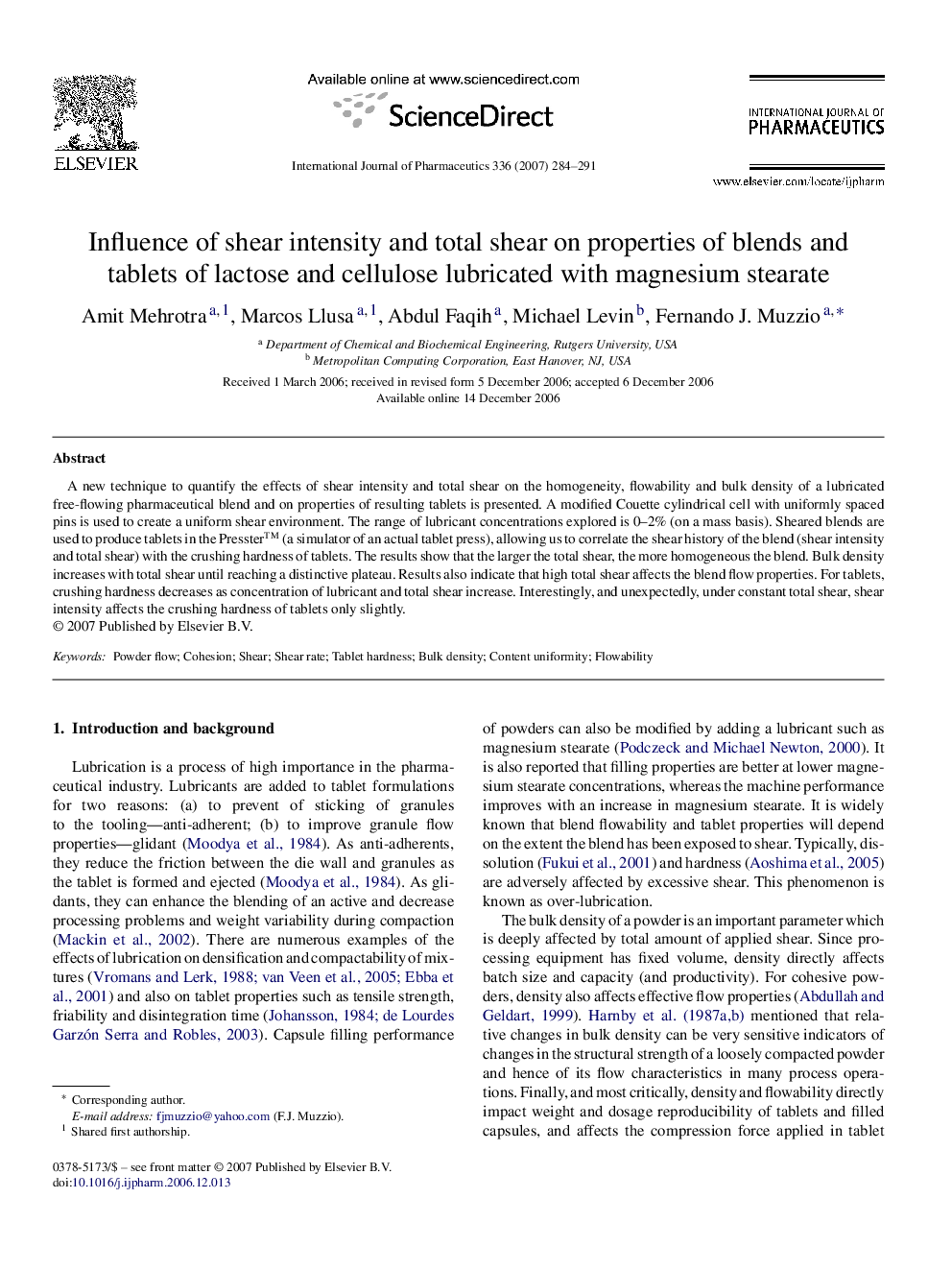| Article ID | Journal | Published Year | Pages | File Type |
|---|---|---|---|---|
| 2506126 | International Journal of Pharmaceutics | 2007 | 8 Pages |
A new technique to quantify the effects of shear intensity and total shear on the homogeneity, flowability and bulk density of a lubricated free-flowing pharmaceutical blend and on properties of resulting tablets is presented. A modified Couette cylindrical cell with uniformly spaced pins is used to create a uniform shear environment. The range of lubricant concentrations explored is 0–2% (on a mass basis). Sheared blends are used to produce tablets in the Presster™ (a simulator of an actual tablet press), allowing us to correlate the shear history of the blend (shear intensity and total shear) with the crushing hardness of tablets. The results show that the larger the total shear, the more homogeneous the blend. Bulk density increases with total shear until reaching a distinctive plateau. Results also indicate that high total shear affects the blend flow properties. For tablets, crushing hardness decreases as concentration of lubricant and total shear increase. Interestingly, and unexpectedly, under constant total shear, shear intensity affects the crushing hardness of tablets only slightly.
